
Agentic coding meets FHIR: build dashboards fast while keeping full control over data, architecture, and interoperability.
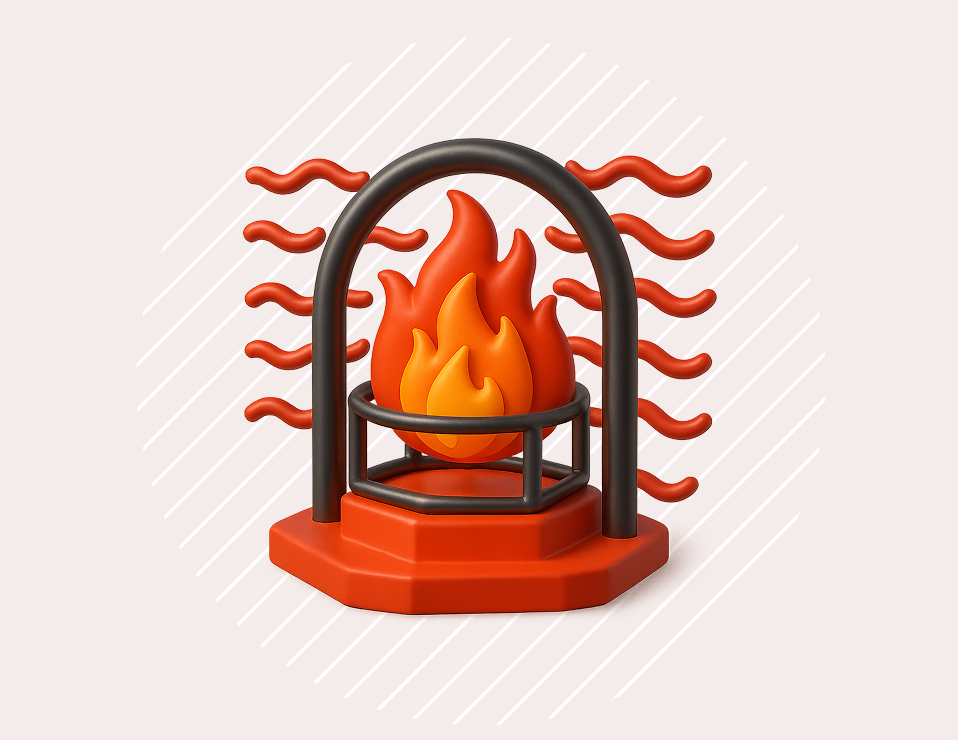
We load-tested Aidbox pool settings. 80 configs show how web threads and DB pools affect throughput and latency.

In 2025, Aidbox focused on performance, FHIR conformance, and developer experience—removing bottlenecks and aligning deeply with the FHIR ecosystem. This post highlights the key architectural changes that make Aidbox faster, more transparent, and production-ready.
.png)
FHIR (Fast Healthcare Interoperability Resources) revolutionized medical data exchange between systems. However, its nested JSON structure makes data analytics challenging.
.png)
CMS-0057-F reshapes interoperability by mandating four FHIR-based APIs and measurable prior authorization standards. Here’s what it changes, who it affects, and why it matters for payers, providers, vendors, and patients.
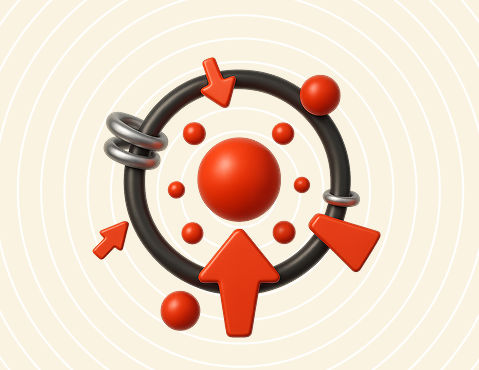
What if working with FHIR didn’t start with APIs and clients, but with files and folders? This article explores FHIR-FUSE, a filesystem interface for FHIR servers, what it makes easier, and where its limits become clear.
.png)
Designing FHIR SDC Questionnaires from paper forms is repetitive and error‑prone. This DevDays session by Maria Ryzhikova shows how Aidbox Forms uses AI to generate Questionnaire templates from PDFs, add scoring logic, and create multilingual forms using FHIR translation extensions.

FHIR security labels can limit access not just to whole resources but to individual fields. Rostislav Antonov’s DevDays talk shows how this works in Aidbox and what trade-offs it creates around leakage, performance, and write protection.

Despite shared specs, FHIR validators disagree on edge cases. FHIR Schema fixes this with a JSON Schema-inspired format and simple, universal algorithm. Learn Aidbox insights, snapshot-less validation, and the roadmap.

FHIR's nested structure works for APIs but frustrates SQL analytics. SQL on FHIR uses a simple DSL to define flat views – portable across ETL/ELT runners, tested via shared suites. Nikolai Ryzhikov's DevDays session demos the workflow from Synthea data to Grafana dashboards.

Managing multiple clinics is hard: every facility needs autonomy, but the network still needs oversight and real-time data flow. OrgBAC and Subscriptions in Aidbox make this easy with automatic isolation and instant event delivery.

Healthcare systems constantly exchange data using different code sets, creating thousands of daily terminology translations. Aidbox TX Engine automates this process with FHIR ConceptMap and $translate, eliminating spreadsheets, custom scripts, and integration errors.

Master unified FHIR async patterns for bulk exports and other long-running operations using Bulk Data Access and R5/R6: Prefer headers (bundle/redirect/manifest), polling, callbacks, long polling, plus HTTP examples and visual flows for Manifest, Bundle, Redirect, Cancel, and Callback workflows.

Now you can start with a clinical intention and end with a fully working data pipeline, without ever breaking the narrative or switching tools.
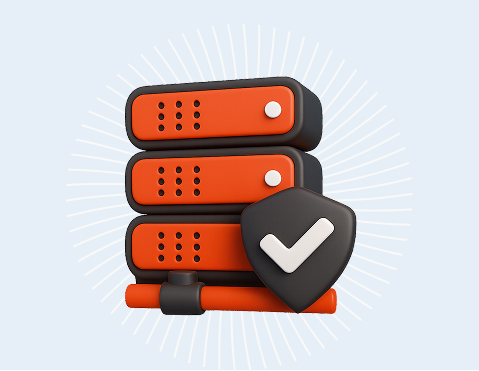
Aidbox just became the first FHIR server to pass all SQL-on-FHIR tests — thanks to full support for the repeat element. This update lets engineers query deeply nested FHIR structures like QuestionnaireResponse.item with a single, elegant definition.
.png)
Fine-grained FHIR access control doesn’t have to be complex — see how we made it simple with Keycloak, SMART on FHIR, and Aidbox.
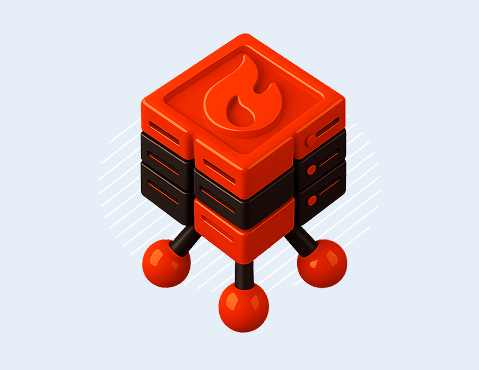
The FHIR community is at a crossroads. Some rush to explore R5, but many are holding back—waiting for R6, the version that promises to finally bring order, stability, and confidence to years of rapid evolution.
.png)
Discover Auditbox, a FHIR-native audit log designed for modern healthcare apps. Now available in Early Access with 12 months free.

From form authoring to clinical insights, the AI Assistant brings the entire FHIR SDC lifecycle into a single, no-code experience — making data capture faster, smarter, and analytics-ready.

Struggling with both massive standards like SNOMED and local custom codes? A hybrid terminology server intelligently splits requests between local and external sources, giving you broad coverage and local control without the trade-offs of traditional TX setups.

The new $materialize operation in Aidbox creates SQL tables or views from FHIR ViewDefinition resources, making nested FHIR data easier to query. It helps turn complex JSON structures into familiar tabular formats for use with standard SQL tools.
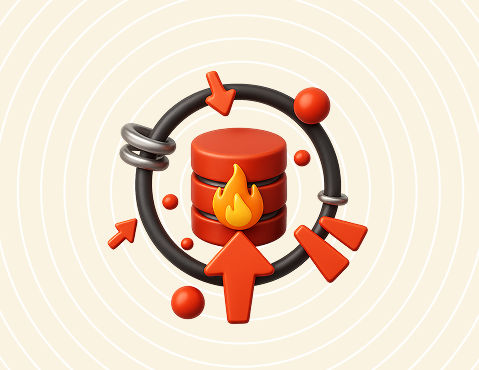
Discover how AI and Aidbox make building FHIR Implementation Guides faster, easier, and accessible to both developers and healthcare experts.

Token Introspection is the critical bridge between Authentication and Authorization. When a client presents a token to access FHIR resources, the server must check if the token is valid.

This article explains how FHIR Security Labels control access to healthcare data by role. It shows how psychiatrists, nurses, and billers see only the data they need, protecting patient privacy. Learn how these labels work at both record and field levels to keep health data safe.

Learn how to create a FHIR Implementation Guide—your organization’s rulebook for turning flexible FHIR standards into actionable, interoperable healthcare data. From profiles and extensions to terminology, search, and packaging, this guide walks you through the essential steps to ensure consist

We recently announced Type Schema—a new, language‑agnostic way to build SDKs from FHIR packages. Today, let's take a look at our Python SDK MVP and show how it streamlines FHIR development from first install to excellent developer experience.

FHIRPath is a powerful language for navigating and extracting data from FHIR resources, but its flexibility can lead to complex expressions that are prone to runtime errors. This article explores the architecture and benefits of implementing a static type analysis system for FHIRPath.

We recently added experimental support for the MCP Server in Aidbox. Let's explore how to set it up and use it to interact with FHIR resources through an LLM interface.

Even with today's advanced medical technology, many healthcare facilities still rely heavily on paper forms for patient information. This ongoing use of paper causes significant challenges.
.png)
FHIR has become the primary standard for exchanging healthcare data. To get started with FHIR, developers need to read the FHIR specification and implementation guides (IGs, such as US Core, MCODE, etc.), and then implement them in their programming language. FHIR SDKs simplify this process by offer

FHIR R6 is on the way, and it’s definitely a major step forward. Although its final publication is not expected until late 2026, Aidbox already supports version 6.0.0-ballot3, allowing you to begin evaluating and prototyping with R6 today — either in the cloud or on a local installation.

StructureDefinition is a resource that describes the structure of other resources, including profiles, extensions, and data types.

Simplifier is a FHIR package registry that stores basic and custom FHIR packages.

FHIR IG (Implementation Guide) is a set of artifacts that describe the requirements for a FHIR server. For example, an IG may contain a set of rules, profiles, extensions, search parameters, and examples of FHIR resources.

Struggling with messy health data? Aidbox Forms + SQL on FHIR transform data collection & analysis. Standardize inputs with coded forms, query FHIR data easily, and focus on care—not paperwork. See how it works with a real risk assessment example.

Aidbox is not necessarily used by engineers. We need to make Aidbox and its settings accessible and understandable. We do this in multiple ways.

Any program has stages of its life. Startup, initialization, regular working, cleanup, error, shutdown. At all of these stages, the program (say, Aidbox) needs to know its settings to behave in ways the user expects.

Our settings have a set of properties attached to them, and some of these properties exist exactly to prevent common mistakes that may lead to Aidbox crash or unwanted behavior.

Source is an intuitive way to think about settings. They come from somewhere, be it a single place or many places.

How can confidentiality of data be ensured and access to these data be controlled among system users, considering different access levels and data sensitivity?

We often need to access data for a specific patient while ensuring that access is limited to them. This can be done by adding a patient reference search parameter to each request.

FHIR specification defines an HTTP interface to complex medical data, including "simple" patient info like the history of their statements, endorsements, observations and so on.

The slicing mechanism enables the specification of requirements for array elements.

In FHIR, you can define a profile not only for a resource but also for an extension.

Binding is used to define an allowed set of values for an element.

Constraint - a validation rule that is defined on a profile and described using the FHIRPath syntax.

One key function of profiles is to modify the cardinality of an element. A profile can restrict an element's cardinality within its base structure.

The base FHIR specification outlines a set of fundamental resources utilized in various contexts within healthcare.

The FHIR specification includes many resources that describe various medical data. Sometimes, however, the basic resources are insufficient to describe the data, and in such cases, FHIR provides the following mechanisms for extending the basic resources.

Simply set up your storage account and update the SDCconfig resource, and all attachment files will be saved in your designated storage.

While forms automatically adapt to different screen sizes, you can now provide an even better experience by adding a short text version of your form’s content.

Need to provide extra information to help users fill out complex questions?

The FHIR US Core Implementation Guide (US Core IG) is a set of standardized profiles and guidelines based on HL7® FHIR® (Fast Healthcare Interoperability Resources) designed for the U.S. healthcare system.

Your storage system must ensure that the SSN identifier is unique across all patient records. This means that if you try to create a new patient with an SSN and another patient with the same SSN already exists, the system will reject the request to prevent duplicate records.

FHIR specifies the translation extension to store translations from the base language of a resource to other languages. In this post, we will cover how to search through resources by specifying the language.

How to start working with “Personal Health Information” without any responsibility?

Aidbox has a Resource Browser that allows to look over the available resources and their data. But sometimes it’s necessary to focus on just one resource and act on it. That’s where Resource Preview comes in!

Resource Browser is the core of Aidbox. It’s useful to review the loaded resources and make decisions based on that.

Discover how a FHIR-native microservices approach streamlines healthcare system development. Learn how to build scalable, interoperable services using FHIR’s ready-to-use APIs, domain models, and terminology tools—ideal for greenfield and legacy system modernization.
.png)
From high development costs to complex integrations, healthcare organizations face significant challenges when creating and managing forms. After reading this article, you'll gain a clear understanding of the biggest roadblocks in healthcare form creation and how to overcome them efficiently with Ai

Access over 3,000 ready-to-use form templates. Upload questionnaires or create new ones using drag-and-drop functionality. Generate FHIR-compliant forms in minutes.

We’re excited to introduce AI-powered features in Aidbox Forms that make creating electronic and multilingual medical forms faster and easier.

Read and watch the interview with Gino Canessa from Microsoft. Gino shares insights on community engagement in FHIR, essential tools for implementation, and the importance of collaboration in digital healthcare.

Read and watch the interview with Grahame Grieve from FHIR Camp 2024. He talks about the future of FHIR, AI in healthcare, and making FHIR accessible for everyone.

The healthcare industry faces complex challenges, many caused by outdated infrastructure and lack of interoperability between systems.

SQL on FHIR in PostgreSQL. Two types of SQL on FHIR View Runners - ETL (in-memory) & ELT (in-database) and demo the ELT implementation for PostgreSQL.

The API Gateway (or Proxy) pattern is popular in modern architecture. In this pattern, the API Gateway component acts as a single entry point and middleware between client applications and backend services. It provides various API management capabilities such as routing and more.

The digital transformation of healthcare is all about using technology to improve patient outcomes. This includes integrating digital tools and platforms into healthcare, from electronic health records and e-prescriptions to wearable devices and AI-based applications.

Discover top free FHIR tools that simplify integration without the cost. From building medical forms to validating FHIRPath, these tools help developers and healthcare teams boost data exchange - totally free!

Learn how subscriptions simplify data management with automated, event-driven workflows. They improve care coordination, decision-making, and streamline processes like data syncing and automation. Plus, Aidbox offers reliable, scalable solutions for both simple and high-load systems.

What is SearchParameter’s code? Which SearchParameters are available in the FHIR Server? Is it possible to have a clash of two different SearchParameters having the same code? How should this clash be resolved according to the FHIR specification? What to do in such situations in Aidbox?

Discover the additional benefits electronic forms bring to medical workflows, and why they should be distinct from reports. In this article, I walk through creating a Wound Assessment form, showcasing how features like repeatable sections, image attachments, and conditional logic make electronic for

The FHIR R5 specification includes 157 resources, from common ones like Patient to specialized ones. But when your data doesn't fit any existing resource, you may need to create a custom type. This article explores 3 ways to create custom FHIR resources and weighs their pros and cons.

Discover how to flatten complex healthcare data using ViewDefinition resource. Dive into our article for tips and examples.
.png)
Learn how to create efficient, user-friendly matrix forms using the Aidbox Public Form Builder. See real-world examples like PHQ-2/PHQ-9 and GAD-7 in action.

We focused on the FHIR IG Registry as it offers a comprehensive dataset. By doing this, we aimed to identify the most pressing issues, challenges, and use cases we were likely to encounter.

Explore all 4 possible ways to configure IGs in the Aidbox FHIR Platform. Dive into what, how, and why each method can fit your needs.

Working with IT engineers, I've noticed a common trait: when faced with routine tasks, they seek ways to avoid them by creating libraries for reusing written code. Routine work consumes time and is prone to errors.

Get up close with FHIR subscriptions, learn where and how you can apply them in the real world to maximize the benefits. Plus, there's a bonus at the end, so keep reading!

Learn How FHIR and SMART Are Transforming EMR Integration in Healthcare. Dive into practical insights from Beda Software's CTO, Ilya Beda, on extending EMR solutions efficiently.

What is SQL on FHIR and why is it perfect for working with large amounts of FHIR data? Capability to perform complex queries, such as join, filter, sort, and aggregate data, are among the many benefits it brings to digital health developers and data engineers.

Patient admissions, order management, medication reconciliation, care coordination are quite repeatable steps. Once you automate it, you get a lot of valuable time back to focus on more important tasks.
.png)
Explore ways of cutting design costs using a multi-tenant FHIR API with SMART on FHIR support and comply with the 21st Century Cures Act for EHR systems on the fly.
.png)
How to keep patient records consistent and complete

Do you have offices or clinics all over the world and want to collect statistical data in a single storage? In this article, we'll share our experiences in implementing HIPAA-compliant data synchronization across multiple Aidbox instances.

How to stay ahead of digital health trends? Tech leaders and engineers often have concerns about HL7 FHIR, integrations, systems design, etc. These topics raise a tonne of questions that even Google can’t answer in depth. But professional communities can!

Are you facing the necessity of becoming CMS compliant? In this article, I would like to tell you about our experience making a US health plan’s legacy medical system CMS compliant.

Sharing our experience: How to securely transport an HL7 message using the MLLP protocol and effectively resolve connectivity issues.
.png)
Basic tips for building high-availability FHIR systems in a cloud infrastructure. Here, you will learn how to develop a production-ready and reliable FHIR solution in the cloud.

Great news for EHR vendors! We are happy to announce that the Aidbox FHIR API module is officially certified for 170.315(g)(10) criteria by ICSA Labs. This means that you can enrich your existing EHR with it, get compliance automatically and strengthen your solution with a pluggable FHIR API.

There is no silver bullet for establishing a working ETL pipeline for transmitting an HL7v2 feed from EHR into FHIR data out of the box. MatrixCare EHR is not an exclusion. In this article, we are going to give examples of how we managed to ease the pain of integration and which instruments we used.

Big data usually means big problems and a lot of work. One of the problems is how to load a lot of data. There is usually some source of big data, and the problem is posed as some kind of legacy system migration or migration of historical data into an FHIR server.

Hey! Good news – Aidbox is in the process of being ONC certified for §170.315(g)(10). In the process of preparing for certification, we systematized the information and have decided to share our handy cheat sheet (PDF) with you.

This post demonstrates how to effectively integrate data produced by medical devices into the FHIR solution based on the Aidbox FHIR platform. Here you will find the FHIR model, a guide on how to adjust the Aidbox platform, and a link to the open-source project that illustrates this concept.

On May, 1st of 2020 ONC has published the final rule called “21st Century Cures Act: Interoperability, Information Blocking, and the ONC Health IT Certification Program” to further boost interoperability among provider organizations and EHR ...

Spoiler alert: HIPAA is easy when you are using Aidbox. The Health Insurance Portability and Accountability Act (HIPAA) sets standards in the United States for protecting individually identifiable health information.

Two-factor authentication (2FA) is a subset of multi-factor authentication (MFA) and an important security measure that adds a second layer of protection to your healthcare app. Read our guide and enable 2FA for Aidbox-based solutions.

Launched 5 years ago for the first time, The X-mas Hackathon is a two-day event that brings healthcare enthusiasts together to build solutions that tackle a wide variety of problems.

How can we successfully implement a telemedicine solution and then use it? To make an accurate choice, let’s examine the main merits and demerits of several telemedicine options.

There are many reasons to let your software solution speak to others. Between interacting with other applications and extending your solution with new modules ...

